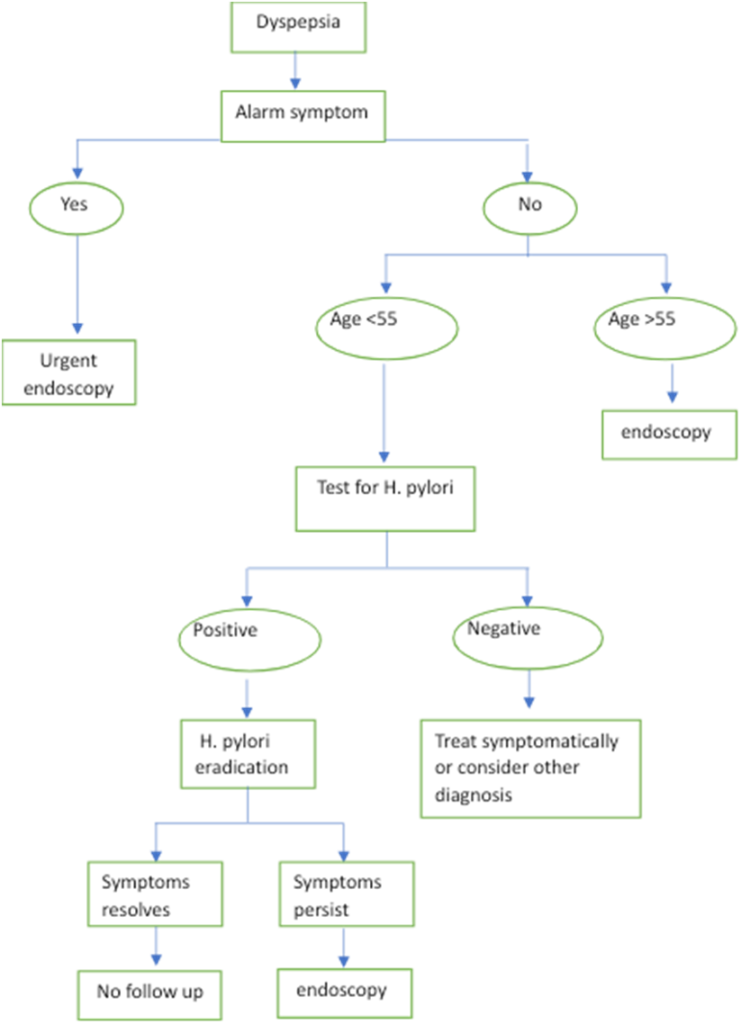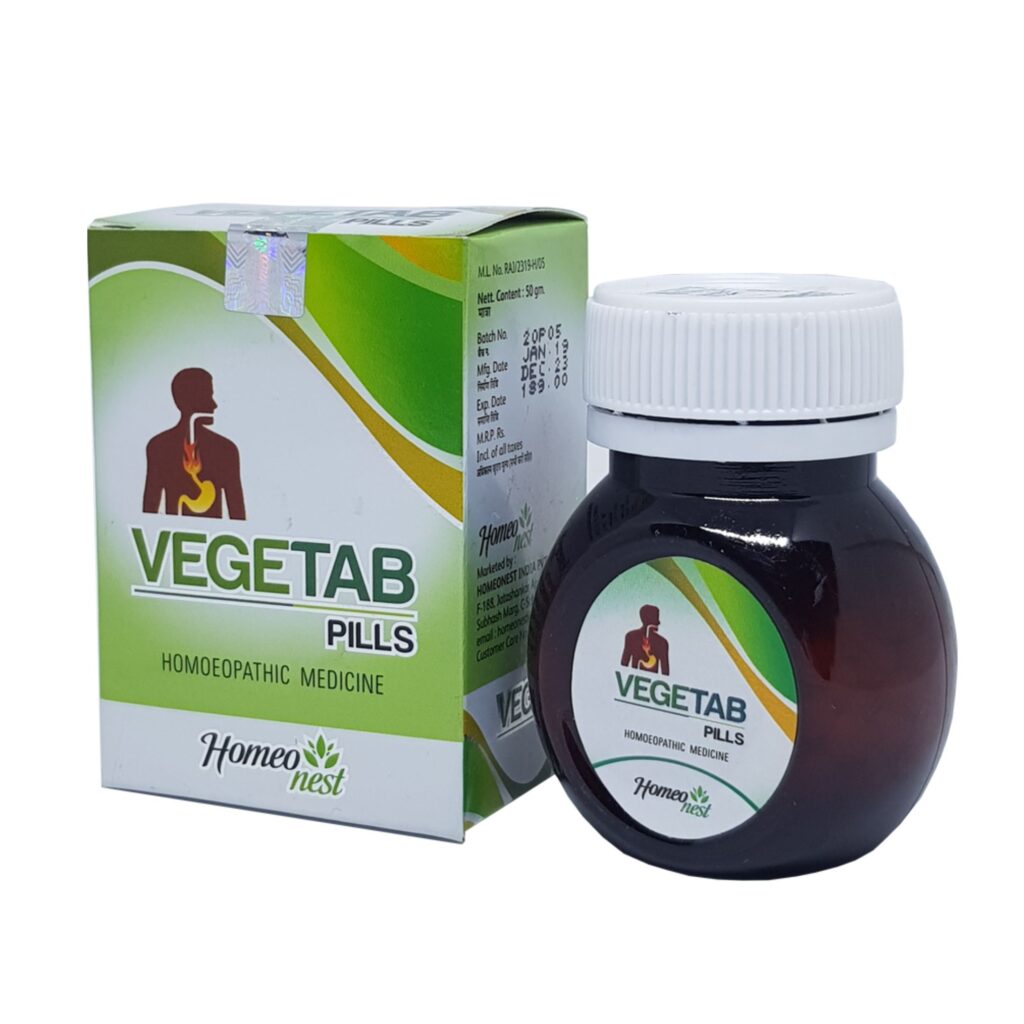Indigestion Can be Treated With Homeopathy

Indigestion or dyspepsia is a common gastrointestinal problem that comes to the physician. Indigestion is a common word that is loosely used by laymen and physicians as some kind of gastrointestinal tract upset. Sometimes the word dyspepsia is used in place of indigestion. The overall prevalence of ranges from 11.5 to 14.7%. About 30 % population in the West experience dyspepsia at some time or another. While the health care financial burden of dyspepsia ranges up to 18 billion U.S Dollars in the united states, apart from social burdens like missed jobs and reduced work efficiency.
Indigestion is usually presenting with symptoms like postprandial nausea and occasionally emesis; upper abdominal bloating, epigastric pain, fullness, or discomfort; belching and flatulence; and, less commonly, a bad taste in the mouth, a coated tongue, fatigue, somnolence, retrosternal burning or headache. Functional dyspepsia is characterized by epigastric pain that lasts for 1 month with no organic disease found on endoscopy, which constitutes about 70% of patients with dyspepsia in which no identifiable risk factor has been found (organic, systemic, or metabolic).
The most common cause of indigestion is gastroesophageal reflux disease and functional dyspepsia. Other causes are the result of organic illness. The risk of developing indigestion is increased with excessive consumption of alcohol, NSAID use, emotional stress that includes anxiety and depression, smoking, too much caffeine, obesity, etc.
| 1. Upper gastrointestinal disorders Peptic ulcer diseaseOesophageal spasm Acute gastritis Non-ulcer dyspepsiaGallstone irritable bowel syndrome | 2. Other gastrointestinal disorders pancreatic disease (cancer, chronic pancreatitis)hepatic disease (hepatic metastases colonic carcinoma |
| 3. Renal disease renal failure hypercalcemia | 4. Drugs NSAIDsIron and potassium supplements CorticosteroidsDigoxin |

Clinical evaluation
A thorough history and physical examination are to be conducted on every patient presenting with chronic indigestion. One should look for alarm symptoms. While doing the investigation, an algorithm is to be followed as given below.
| 1. Odynophagia or dysphagia | 2. Jaundice |
| 3. Unexplained weight loss | 4. Palpable mass or adenopathy |
| 5. Recurrent vomiting | 6. Family history of gastroesophageal malignancy |
| 7. Occult or gross gastrointestinal bleeding |
Table-1 Alarm symptoms when treating a patient with dyspepsia

Differential diagnosis
A patient who has symptoms of dyspepsia and has not gone to any investigation is termed uninvestigated dyspepsia. The investigated patients have five 5 major differential diagnosis that includes, gastroesophageal reflux (with or without esophagitis), medications, functional dyspepsia, chronic peptic ulcer disease (PUD), and malignancy. While the minority of the patient is diagnosed with pancreatic or hepatobiliary tract disease, motility disorders, infiltrative diseases of the stomach (e.g., eosinophilic gastritis, Crohn’s disease, sarcoidosis), celiac disease, intestinal angina, small intestine bacterial overgrowth (SIBO), irritable bowel syndrome (IBS), metabolic disturbances (e.g., hypercalcemia, heavy metal), diabetic radiculopathy, hernia, and abdominal wall pain.
General management
- For mild indigestion, careful evaluation and reassurance are required.
- Drugs especially NSAIDs which cause indigestion should be stopped or narrowed down intake.
- Persons with GERD should limit the consumption of alcohol, caffeine, and smoking, avoid heavy meals before bedtime, and raise the head end of the bed.
Homeopathic management
According to the homeopathic concept of diseases, indigestion may be regarded as indisposition when it occurs due to some fault in diet and regimen. Indigestion is improved by some changes in diet and regimen.
Indigestion is to be considered a pseudo-chronic disease when to continues exposure to avoidable noxious influences i.e., NSAIDs, coffee, smoking, etc. This condition can be helped by an improved mode of living.
While the other conditions arise as natural chronic diseases which should be treated with appropriate anti-psoric remedies.
Few homeopathic medicines for indigestion with their indication
Nux vomica: Gastric complaint in sedentary person, after coffee, tobacco, alcoholic drinks, overeating; eructation sour, bitter. Pressure in the stomach one or two hours after eating.
Carbo vegetabilis: Indigestion after excessive drinking. Flatulence abdomen feels distended eructation gives temporary relief. Eructation, heaviness, fullness, and sleepiness.
Bryonia: Complaints in hot summer weather; from cold drinks or ice. Pressure as from stone at the pit of stomach; relieved by eructation. Nausea and faintness on rising.
Abies nigra: Dyspeptic complaints of old people. Pain in the stomach after eating. Total loss of appetite in the morning.
Pulsatilla: Eructation with a taste of food, remains after a long time. Heartburn. Dyspepsia great tightness after every meal; must lose clothing. All gone sensation in tea drinkers.
Antimonium crudum: Gastric complaints from over-eating; stomach weak digestion easily disturbed. Complaints after bread, pastry, acids, vinegar, in hot weather. Belching testing of ingesta. Bloating after eating.
Lycopodium: Excessive accumulation of flatulence especially in the lower abdomen; constant sensation of satiety, even after a few mouthfuls fill up to the throat and he feels bloated.
Alumina: Chronic eructation for years; worse in the evening. Heartburn; feels constricted. Eat small morsels of food.
Anacardium: weak digestion with fullness and distention. Empty feeling in my stomach. Eating relieves dyspepsia.
Rubrics are useful in cases of indigestion-
Kent’s repertory
Stomach; eructations
Stomach; indigestion
Abdomen; distension
Abdomen; distention, eating after
Stomach; heartburn
Boger’s Boenninghausen’s characteristics and repertory
Eructation
Waterbrash and heartburn
Stomach; epigastrium, pain, aggravates Eating after
VEGE-TAB is a homeopathy medicine, it helps with indigestion and acidity problems. If you are facing any issue related to indigestion then you can try this remedy. It is totally safe and free from side effects.



